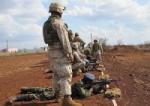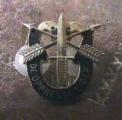Summary of Key Findings:
1. Attitudes Toward the President of the United States: Overall, 45% of Arabs polled have a favorable view of President Obama (50% outside Egypt), 28% are neutral, 24% have negative views. Remarkably, 79% of Saudis have a favorable view of President Obama and only 14% have negative views. Consistently, in all six countries, the negative views of the President are remarkably low.
2.Attitudes Toward the United States: The most important consequence of their favorable views of President Obama appears to be expressed hope for American foreign policy in the Middle East. After a few weeks of the Obama administration, a majority in all countries, 51% (59% outside Egypt) expressed hopefulness about US Middle East policy, 28% were neutral, while only 14% were discouraged.
3.Attitudes Toward the Arab-Israeli Conflict: Unlike the case of the 2006 Israeli-Lebanese war, when most Arabs believed Israel lost the war and Hezbollah won, most Arabs polled believe that Israel was the biggest winner of the Gaza war in 2008-2009, and that the Palestinian people were the biggest losers.
4.Attitudes on Iraq: 65% of Arabs polled (compared with 61% in 2008) believe that if the US withdraws its forces from Iraq as planned by the end of 2011, Iraqis will find a way to bridge their differences. 72% believe Iraqis are worse off than they were before the Iraq war, but this is a decrease from 82% in 2008.
5.Attitudes Toward Iran: There are indications the criticism of Iran, particularly in Morocco and Egypt, is having some impact. 13% identify Iran as one of their two biggest threats (compared with 7% in 2008), and outside Egypt, 20% see Iran as one of the two biggest threats to them, compared with 11% in 2008.
6.Attitudes on Global Leadership: The attacks on Hezbollah’s leader Hasan Nasrallah, especially in Egypt and Morocco, appear to be having an impact. In an open question to identify the leader they admire most outside their own countries, only 6% identify Nasrallah (in contrast with 2008, when he led with 26%). However, he maintains solid popularity in Jordan (21%). The net winner is Hugo Chavez, president of Venezuela, who was identified as the most admired leader with 24% of those polled (compared with only 4% in 2008).
7.Media Trends: The use of the internet continued to grow with 36% stating that they use the internet at least several times a week and only 38% stating that they never use the internet (compared with 52% in 2008).












Bookmarks